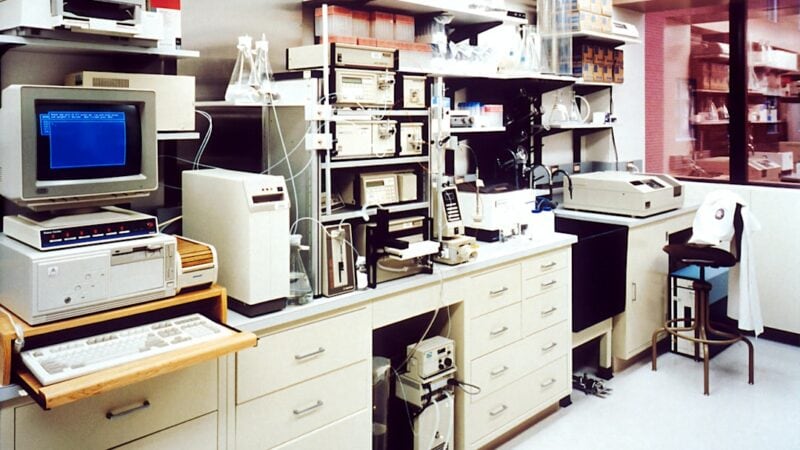The Best Gluten-Free Supplements for People with Celiac

Celiac disease and gluten sensitivity are two conditions that affect individuals who have an intolerance to gluten, a protein found in wheat, barley, and rye. These conditions can cause a range of symptoms, from digestive issues to skin problems and fatigue. Proper nutrition is crucial for individuals with celiac disease and gluten sensitivity to manage their symptoms and maintain their overall health. In this blog post, we will explore the importance of proper nutrition for celiac patients and discuss the role of gluten-free supplements in meeting their nutritional needs.
Table of Contents
Key Takeaways
- Celiac disease is an autoimmune disorder triggered by gluten consumption.
- Gluten-free supplements are important for celiac patients to avoid nutrient deficiencies.
- Nutritional deficiencies in celiac patients can be addressed with the help of supplements.
- Choosing the right gluten-free supplements is crucial for meeting individual needs.
- Probiotics, omega-3 fatty acids, and protein supplements can benefit celiac patients.
Understanding Celiac Disease and Gluten Sensitivity
Celiac disease is an autoimmune disorder in which the ingestion of gluten leads to damage in the small intestine. This damage prevents the absorption of nutrients from food, leading to a range of symptoms such as diarrhea, bloating, weight loss, and fatigue. Gluten sensitivity, on the other hand, is a non-celiac condition in which individuals experience similar symptoms after consuming gluten but do not have the same intestinal damage.
The exact causes of celiac disease and gluten sensitivity are not fully understood, but it is believed that both genetic and environmental factors play a role. Diagnosis of celiac disease involves blood tests to check for specific antibodies and a biopsy of the small intestine to confirm the presence of damage. Treatment for celiac disease involves following a strict gluten-free diet for life.
The Importance of Gluten-Free Supplements for Celiac Patients
Celiac patients may need to take supplements to ensure they are getting all the necessary nutrients their bodies need. The damage to the small intestine caused by celiac disease can lead to malabsorption of important vitamins and minerals, putting individuals at risk for nutrient deficiencies. Additionally, following a strict gluten-free diet can sometimes limit the variety of foods available, making it more difficult to obtain all the necessary nutrients solely through diet.
Some common nutrient deficiencies in celiac patients include iron, calcium, vitamin D, vitamin B12, and folate. These nutrients are essential for various bodily functions, including the formation of red blood cells, bone health, and nerve function. Taking gluten-free supplements can help address these deficiencies and ensure that celiac patients are getting the nutrients they need to support their overall health.
Top Nutritional Deficiencies in Celiac Patients and How Supplements Can Help
Celiac patients are at an increased risk for several nutrient deficiencies due to the damage to their small intestine. Iron deficiency is one of the most common deficiencies seen in celiac patients, as the small intestine is responsible for absorbing iron from food. Iron is essential for the production of red blood cells and oxygen transport throughout the body. Taking an iron supplement can help address this deficiency and prevent symptoms such as fatigue and weakness.
Calcium and vitamin D deficiencies are also common in celiac patients, as the small intestine plays a role in their absorption as well. Calcium is important for bone health, while vitamin D helps with calcium absorption. Taking a calcium supplement with added vitamin D can help ensure that celiac patients are getting enough of these nutrients to support their bone health.
Vitamin B12 and folate deficiencies can occur in celiac patients due to malabsorption in the small intestine. These nutrients are important for nerve function and the production of red blood cells. Taking a B-complex supplement that includes vitamin B12 and folate can help address these deficiencies and prevent symptoms such as numbness or tingling in the hands and feet.
It is important for celiac patients to work with a healthcare provider to determine their specific supplement needs. A healthcare provider can perform blood tests to identify any nutrient deficiencies and recommend appropriate supplements based on individual needs.
Choosing the Right Gluten-Free Supplements for Your Needs
When choosing gluten-free supplements, there are several factors to consider. First, it is important to look for supplements that are specifically labeled as gluten-free. This ensures that the product does not contain any gluten or has been tested to meet the FDA’s gluten-free standards.
There are various types of gluten-free supplements available, including capsules, tablets, powders, and liquids. The choice of supplement form depends on individual preferences and any specific dietary restrictions or swallowing difficulties. It is also important to read supplement labels carefully to ensure that the product does not contain any other allergens or ingredients that may cause a reaction.
Essential Vitamins and Minerals for Celiac Patients

Celiac patients need to pay special attention to certain vitamins and minerals to support their overall health. Some essential nutrients for celiac patients include:
– Vitamin D: This vitamin is important for bone health and immune function. It can be obtained through sun exposure and fortified foods such as dairy products and some cereals. However, celiac patients may need to take a vitamin D supplement if their levels are low.
– Calcium: Calcium is crucial for bone health and muscle function. Good sources of calcium include dairy products, leafy greens, and fortified foods. Celiac patients may need to take a calcium supplement if their intake is inadequate.
– Iron: Iron is necessary for the production of red blood cells and oxygen transport. Good sources of iron include lean meats, beans, and fortified cereals. Celiac patients may need to take an iron supplement if their levels are low.
– Vitamin B12: This vitamin is important for nerve function and the production of red blood cells. It is found naturally in animal products such as meat, fish, and dairy. Celiac patients who follow a vegetarian or vegan diet may need to take a B12 supplement.
– Folate: Folate is essential for cell growth and the production of DNA. It can be found in leafy greens, beans, and fortified grains. Celiac patients may need to take a folate supplement if their levels are low.
The Benefits of Probiotics for Celiac Patients
Probiotics are beneficial bacteria that can help support gut health and improve digestion. They can be especially beneficial for celiac patients, as they may help reduce inflammation in the gut and improve nutrient absorption. Probiotics can be found in certain foods such as yogurt, sauerkraut, and kimchi. However, celiac patients should be cautious when choosing probiotic foods, as some may contain gluten or be cross-contaminated.
If celiac patients are unable to obtain probiotics through food sources, they may consider taking a probiotic supplement. When choosing a probiotic supplement, it is important to look for one that is specifically labeled as gluten-free and contains a variety of beneficial strains. It is also important to follow the recommended dosage instructions and consult with a healthcare provider before starting any new supplement.
Herbal Supplements for Celiac Patients: Which Ones Are Safe?
Many individuals with celiac disease turn to herbal supplements to manage their symptoms or support their overall health. However, it is important to exercise caution when taking herbal supplements, as some may interact with medications or have potential side effects.
Some commonly used herbal supplements by celiac patients include ginger, turmeric, and peppermint. These herbs have been traditionally used to support digestion and reduce inflammation. However, it is important to consult with a healthcare provider before taking any herbal supplements, as they may not be safe for everyone.
Omega-3 Fatty Acids and Celiac Disease: What You Need to Know
Omega-3 fatty acids are essential fats that play a crucial role in brain health, heart health, and reducing inflammation in the body. Good sources of omega-3s include fatty fish such as salmon and mackerel, flaxseeds, chia seeds, and walnuts.
Celiac patients can incorporate omega-3s into their diet by consuming these food sources. However, if their intake is inadequate, they may consider taking an omega-3 supplement. When choosing an omega-3 supplement, it is important to look for one that is specifically labeled as gluten-free and contains a high concentration of EPA and DHA, the two most beneficial forms of omega-3s.
Gluten-Free Protein Supplements for Celiac Patients
Protein is an essential nutrient for celiac patients, as it plays a crucial role in tissue repair and muscle growth. Good sources of protein in a gluten-free diet include lean meats, fish, eggs, dairy products, legumes, and quinoa.
However, some individuals may find it challenging to meet their protein needs solely through diet. In such cases, gluten-free protein supplements can be a convenient option. There are various types of gluten-free protein supplements available, including whey protein, pea protein, and hemp protein. It is important to choose a protein supplement that is specifically labeled as gluten-free and does not contain any other allergens or ingredients that may cause a reaction.
Tips for Incorporating Supplements into Your Gluten-Free Diet
When incorporating supplements into a gluten-free diet, it is important to follow the recommended dosage instructions provided by the manufacturer. Taking more than the recommended dosage can lead to potential side effects or interactions with medications.
It is also important to incorporate supplements into your daily routine consistently. This can be done by setting a reminder or incorporating them into your meals or snacks. Taking supplements with food can help enhance absorption and reduce the risk of stomach upset.
Lastly, it is important to remember that supplements should not replace a healthy diet. They should be used as a complement to a well-balanced gluten-free diet to ensure that celiac patients are getting all the necessary nutrients their bodies need.
Proper nutrition is crucial for individuals with celiac disease and gluten sensitivity to manage their symptoms and maintain their overall health. Gluten-free supplements can play a valuable role in meeting the nutritional needs of celiac patients and addressing any nutrient deficiencies they may have. It is important for celiac patients to work with a healthcare provider to determine their specific supplement needs and ensure that they are choosing the right supplements for their individual requirements. By prioritizing proper nutrition and incorporating gluten-free supplements as needed, celiac patients can support their overall health and well-being.
If you’re interested in learning more about celiac disease, its types, causes, and diagnosis, check out this informative article on TurnToBeHealthy.com: What is Celiac Disease? Types, Causes, and Diagnosis. It provides valuable insights into this autoimmune condition that affects the small intestine. Understanding the intricacies of celiac disease can help you make informed decisions about your health and find the best gluten-free supplements to manage the condition effectively.
FAQs
What is celiac disease?
Celiac disease is an autoimmune disorder that affects the small intestine. It is triggered by the consumption of gluten, a protein found in wheat, barley, and rye.
What are the symptoms of celiac disease?
The symptoms of celiac disease can vary widely, but may include abdominal pain, bloating, diarrhea, constipation, fatigue, and weight loss.
What are gluten-free supplements?
Gluten-free supplements are dietary supplements that do not contain gluten. They are designed to provide essential nutrients to people with celiac disease who may have difficulty getting these nutrients from their diet.
What are the best gluten-free supplements for people with celiac disease?
The best gluten-free supplements for people with celiac disease may vary depending on their individual needs. However, some commonly recommended supplements include probiotics, digestive enzymes, vitamin D, and omega-3 fatty acids.
Why do people with celiac disease need supplements?
People with celiac disease may have difficulty absorbing nutrients from their food due to damage to the small intestine. Supplements can help ensure that they are getting the nutrients they need to maintain their health.
Are all supplements gluten-free?
No, not all supplements are gluten-free. It is important to read labels carefully and look for supplements that are specifically labeled as gluten-free.
Can supplements replace a gluten-free diet?
No, supplements cannot replace a gluten-free diet. It is important for people with celiac disease to follow a strict gluten-free diet in order to manage their symptoms and prevent further damage to their small intestine. Supplements can be used to supplement a gluten-free diet, but should not be relied upon as a replacement.





